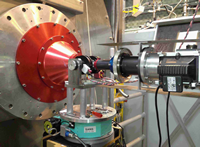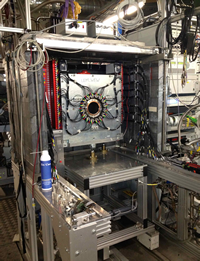
Contact the group: sl10 @ st-and.ac.uk
|








|
|
Welcome and Introduction The research interests of the group range from fundamental aspects of superconductivity and magnetism through to applied research on magnetic recording media. Our principle experimental approach is to use powerful microscopic probes of condensed matter, such as neutrons and muons, to reveal information that cannot be obtained by other methods. The results can be related both to theoretical models and to signatures obtained in bulk characterisation methods such as magnetisation measurements. The group, headed by Prof. Stephen Lee, has a strong record in obtaining competitively awarded beam time at some of the world's leading international facilities including ISIS (UK), the Paul Scherrer Institute (Switzerland), the Institute Laue Langevin (Grenoble) and Diamond (UK). Research collaborations currently exist with groups from around the world including the USA, Japan, India, Switzerland, France, Germany, Korea and the Netherlands. The work of the group is regularly published in leading international journals and is frequently represented globally at conferences. Some of our current research interests include mesocopic the interaction of magnetism and superconductivity; superconductivity and vortex matter; magnetic recording media; thin film and nanomagnetic arrays. The techniques that we make regular use of are small angle neutron scattering (SANS), muon spin rotation (µSR), polarised SANS (SANSPOL), polarised neutron reflectivity (PNR), low energy muons (LEM) and resonant X-ray scattering. Information on some of these topics, as well as links to some recent publications, can be found on these pages.
The SANS small-angle spectometer at the Paul Scherrer Institute (PSI), Switzerland.
|
|
|
|
Copyright © 2012 - 2013. University of St. Andrews. Last Updated: 20/03/2013 |


